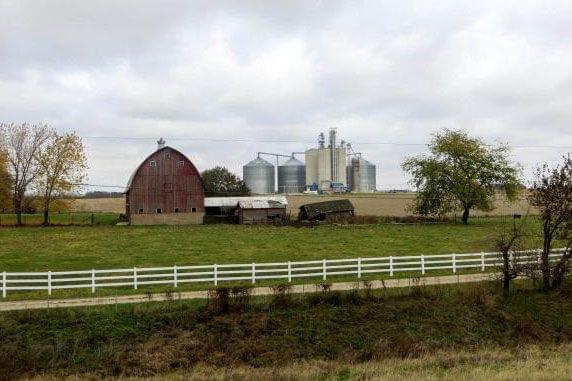New Pilot Program Brings AP Classes To Rural Schools

A new pilot program brings AP classes to schools in rural communities. David Wilson
Advanced Placement courses are a rarity in rural Illinois high schools. A new pilot program unveiled this month attempts to fix that by testing out online AP instruction.
The program is an initiative spearheaded by the Governor's Rural Affairs Council (GRAC) and is designed to test the feasibility of online AP courses in areas where it’s difficult to staff and administer the college level courses in a traditional classroom environment, according to a press release from the office of Lt. Gov. Evelyn Sanguinetti, who serves as chair of the GRAC. High school students who perform well on AP tests can earn college credit, which can potentially defray college tuition costs. AP classes also introduce high school students to the rigor of a college course. While access is severely limited in rural communities, AP courses are widely available in urban and suburban high schools in Illinois.
Georgetown-Ridge Farm High School, located in a small farming community in Vermilion County, is one of 10 schools participating in the semester-long pilot program. Principal of Georgetown-Ridge Farm, Kevin Thomas, says he’s long wanted to bring AP to the school, but full class schedules and a shortage of teachers who can teach the advanced courses have proved insurmountable obstacles. He says the online AP pilot program is a feasible solution because it doesn’t require a teacher to administer the class. Instead, he says, students virtually communicate with an AP teacher located off-site. This spring, four students at the high school are taking an online AP history class. The class is administered by the Illinois State Board of Education’s statewide virtual school, known as the Illinois Virtual School.
Thomas says the pilot program is an opportunity to put the students “on the same playing field” as pupils in more urban environments with access to AP courses.
Between 65 and 70 percent of the high school’s students are classified as low income, according to Thomas. "We're a rural community. A lot of farmers," he said.
The online AP class costs $225 per student per semester, according to Thomas. He said the district is picking up half the cost of the classes for the four students enrolled in the pilot program. If school officials choose to continue to offer online AP courses beyond this spring, he expects the high school will split the cost of the classes with students and their families.
AP test scores from students taking online and those enrolled in face-to-face classes will be collected and compared at the end of the pilot program, according to Sanguinetti’s office.
